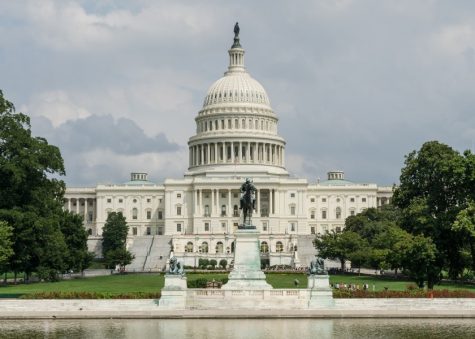
Tulane University senior Yasmeen Ohebsion testified before Congress last month to share her and her peers’ stories about experiencing antisemitism at Tulane.
The Congressional Committee on Education & the Workforce held a bipartisan roundtable to hear from nine Jewish students about their experiences with antisemitism on their campuses. Attending students hailed from universities such as Harvard University, University of Pennsylvania, Columbia University and Massachusetts Institute of Technology.
Ohebsion spoke about her experience during a clash between pro-Palestine and pro-Israel students on Freret Street in October. She said she was walking to the Jewish Studies department when “a woman accosted [her] and screamed in [her] face: ‘[expletive] you, Jew.’”
“This is my reality as a Jewish student who wears a Star of David,” she said at the hearing.
Ohebsion said she reported the incident after the rally to the university’s official bias and discrimination reporting form. “The response was to mischaracterize this antisemitism as political speech and offer me mental health resources; no other action was taken,” Ohebsion said.
The Department of Education is still investigating Tulane for a potential civil rights violation after the Oct. 26 rally, where a rally between pro-Palestine and pro-Israel protesters on Freret turned briefly violent leaving several students injured and four people arrested.
Ohebsion said a group of Tulane students approached the Office of Equity, Diversity and Inclusion with complaints regarding antisemitic incidents.
“They were instructed to document these incidents,” Ohebsion said. “These students did not receive a response from the EDI office for six weeks. Their document still has not been acknowledged by the EDI office almost three months later.”
Tulane spokesperson Mike Strecker said federal law prevents the school from commenting on specific student concern reports or their follow-ups.
“Our practice is to respond immediately and fully to reports of bias or discrimination, in light of the information made available to the university,” he said. “When a bias incident is reported, our case manager’s priority is to follow up so that the student is supported and to connect the student with the Office of Student Conduct who can talk the student through their rights and options under the conduct process.”
During the discussion, Democratic and Republican committee representatives asked the students about their experiences with antisemitism at their universities.
Texas Republican Rep. Nathaniel Moran asked Ohebsion for more details about the delay from the EDI office and if she has received any response.
“Medical students of Tulane’s medical school reached out to the DEI office expressing that they felt unsafe after a slew of antisemitic incidents, including swastikas carved into classrooms,” Ohebsion said. “After sending that document to the university, they didn’t even receive a reply at all for six weeks. The reply after six weeks, on one of the last days of last semester, included something along the lines of, ‘Our office is always open if you want to talk.’ Those students have not received a response that addresses their document at all.”
When asked about the swastika incident, Strecker said, “We have received incomplete information regarding such an incident and are working to gather more details. We will hold anyone accountable who engages in such a flagrant and despicable violation of university conduct policies.”
“I am here imploring you, our policymakers, to compel my university to step up and show us what American values look like,” Ohebsion said. “We will not be silent until they act.”


